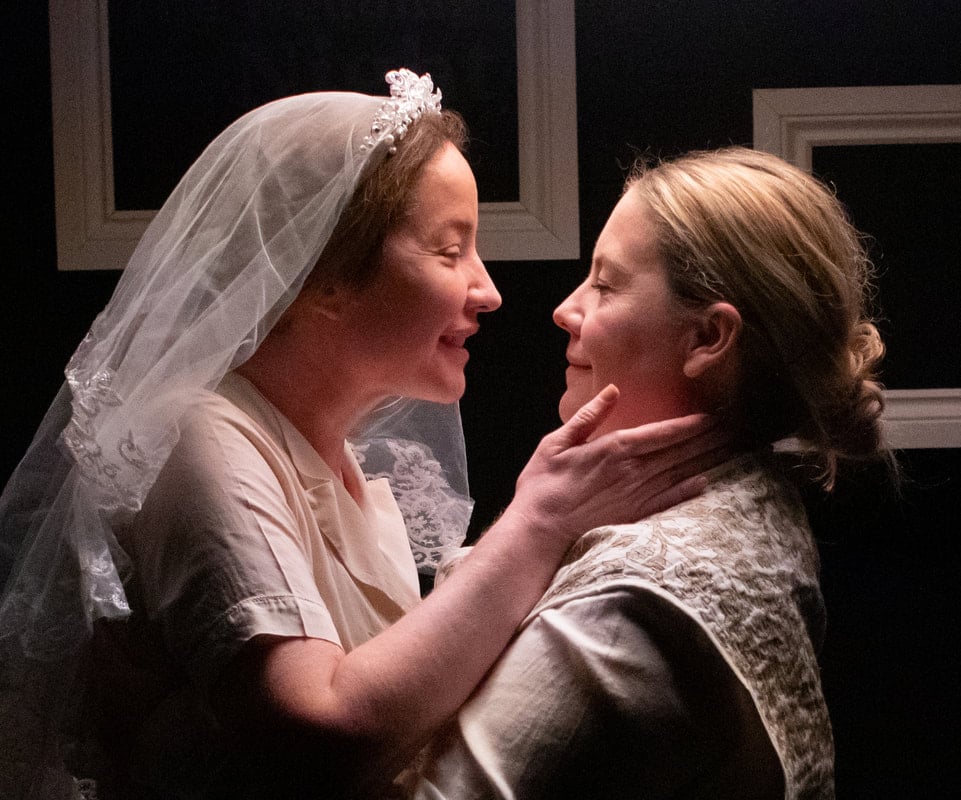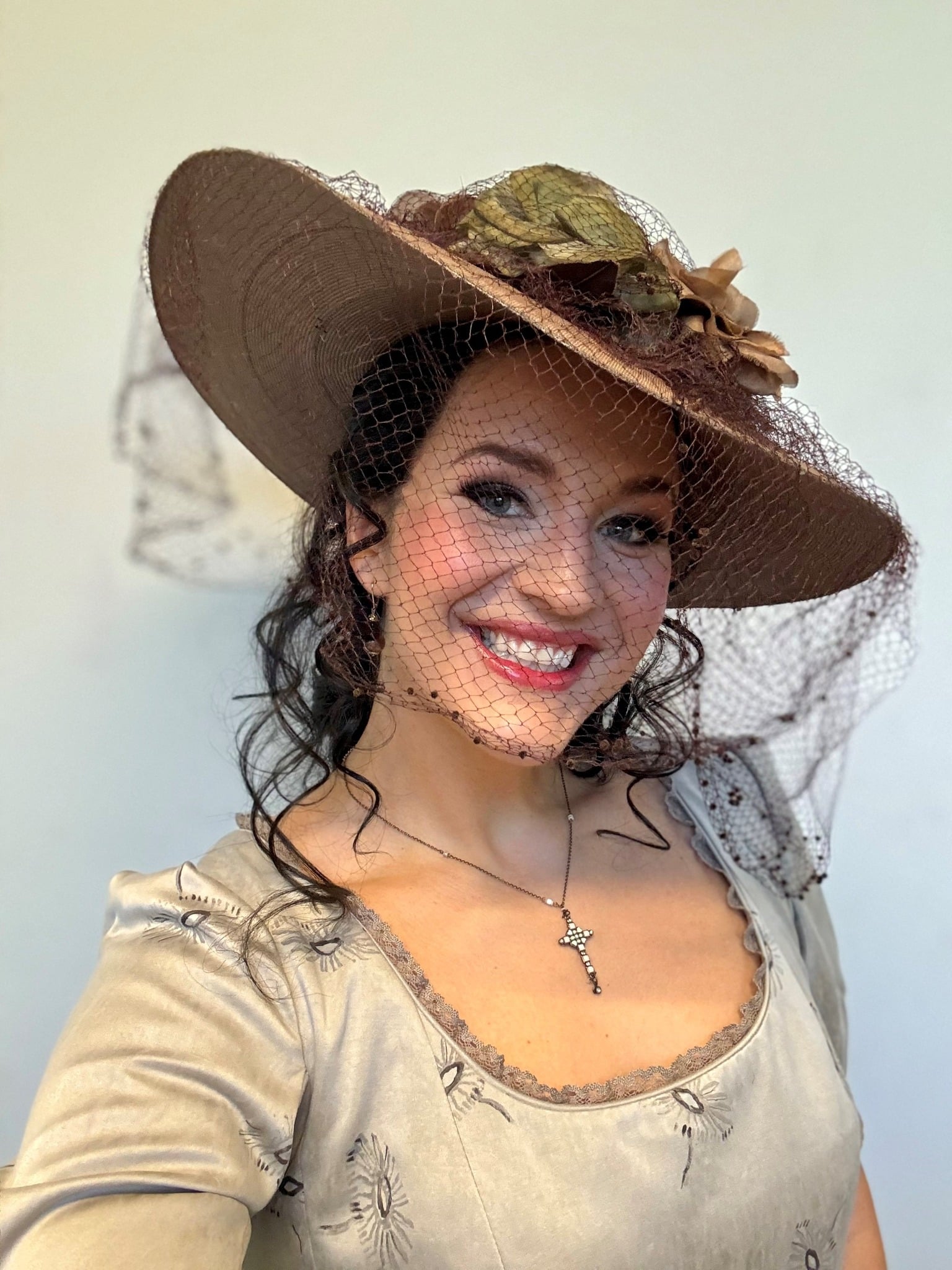Ruth Leon recommends – The Marriage of Alice B.Toklas
Ruth Leon recommendsPOCKET REVIEW: The Marriage of Alice B.Toklas – Jermyn Street Theatre
Your appreciation of this fragmented play by Edward Einhorn about two of the world’s most famous lesbians – Gertrude Stein and Alice B. Toklas – will depend necessarily on your understanding of genius and whether you think the American poet and art connossieur was one. She certainly thought she was, as did her lover, Alice, and, according to the play, so did all her friends. These included Picasso, Hemingway, Joyce, and just about every modernist creative type within her Paris circle who all either were, or thought they were, geniuses too.
Einhorn has constructed, if that’s the right word, a two-act Jewish wedding for the lovers, with the dialogue in Stein’s recognisable syntax, with Picasso, Hemingway, et al, dozens of them, it seems, all played by the admirable Kelly Burke and Mark Huckett. The performances are strong all round, with Natasha Byrne and Alyssa Simon often surprisingly touching as Gertrude and Alice.
The play is admirably researched but it’s not really funny enough to sustain the slight material, which depends on staccato conversations about the nature of genius.
What comes over is the love between the two women and their need to pretend a marriage which was, in fact, if not in name, real and lasting.






Stein was not a genius. She tried to write poetry and text while disembodying the words of meaning, so that only the sound remained. Hence the appropriateness of her ‘libretto’ for ‘Four Saints in Three Acts’ by Virgil Thompson, a surrealist piece of music theatre. Language without meaning is no longer language, it isr educed to sounds, like music without interrelated tonal meaning is reduced to mere sounds, and painting without imaginary spaces and objects is reduced to mere arranged surfaces within a frame.
And Mallarmé had already experimented with words reduced to sounds in the 19th century, without much success. His best poetry is still capable of conjuring-up emotionally-charged images, which is only possible if words still carry meaning beyond their sounds.
Listen to a foreign language that you don’t know – like Mandarin or Thai. There you have sounds without meaning – to you. They only have meaning to someone who knows the language, i.e. its meaning, beyond the sounds.
Attempts like Stein’s can only be understood from the longing of the early modernists to ‘liberate’ expressive means from the ‘dust’ of age-long ‘use’, which had made them ‘meaningless for the modern world’.
John, you are correct in much of this. However, as a fan of the Thomson/Stein 4 Saints.., I myself find some meaning- perhaps strange but nonetheless captivating to myself – in many of the passages… “Pigeons on the grass, alas…” – Tony Cole
I meant that the Saints libretto was good, because it is part of a music theatre piece, the music can ‘add’ or suggest meaning, or the meaningless obtains a quality of its own in the combination.